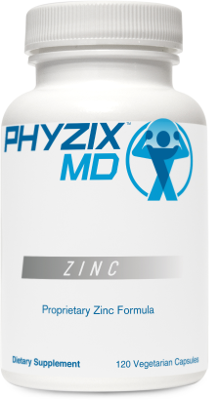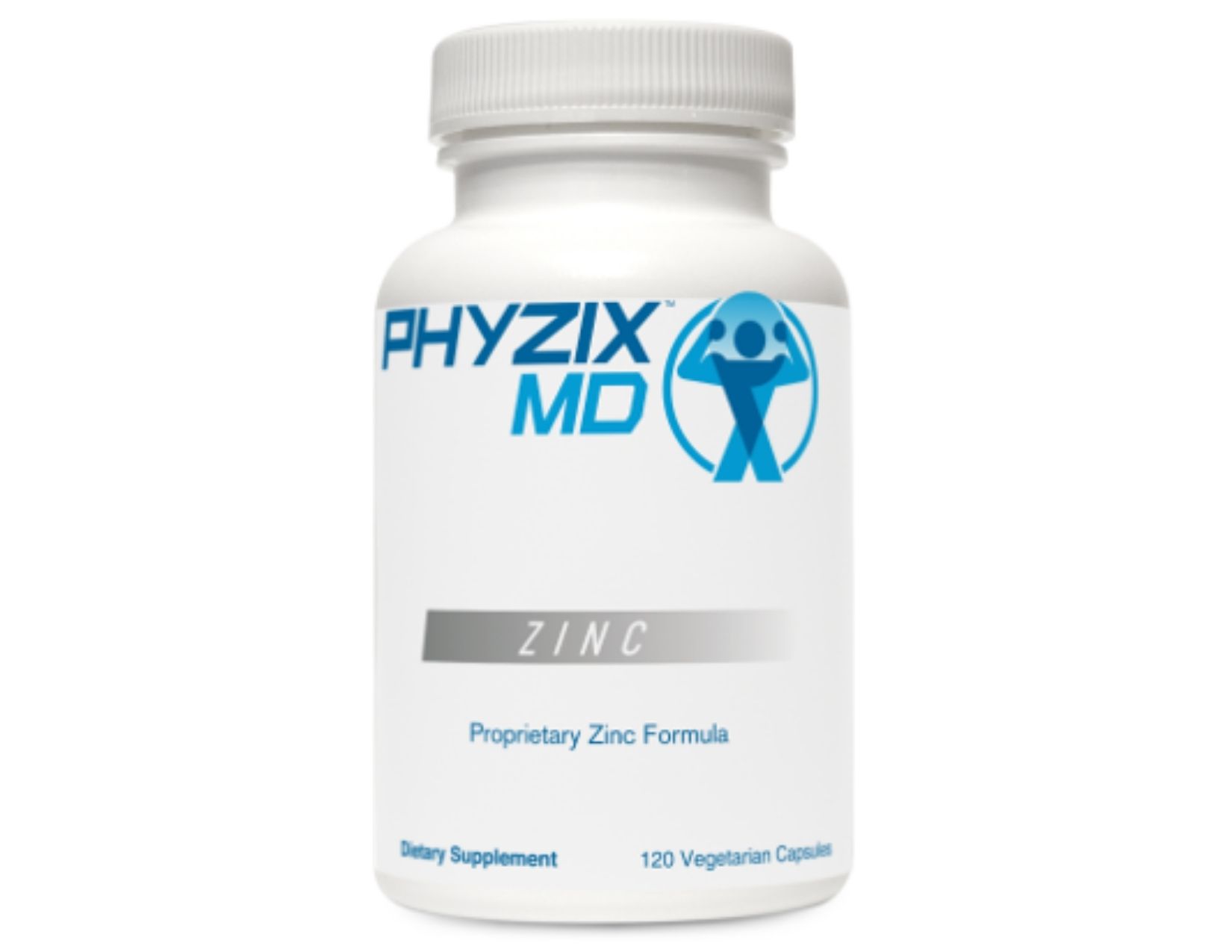Zinc is an important trace mineral for your body’s foundational health, serves the catalytic, structural, and regulatory functions in the body. Zinc ultimately supports immune and neurological function, growth, taste acuity, nutrient metabolism, and reproductive health.* Zinc helps maintain the structural integrity of cell membranes; it assists them in their normal function and protects them from oxidative damage.[4] Zinc is a mineral found in foods such as oysters, red meat, crab, and lobster. But as Dr. Jeff Davis has suggested, unless downing a few oysters every day, you probably need to supplement your Zinc intake. During the pandemic, when immune health is at the forefront of most people’s minds, it’s important to make sure you’re taking enough Zinc.
With the help of Dr. Jeff Davis, Bonvera has launched our very own Zinc supplement within our Phyzix M.D. line. This has been a well-received addition to an already amazing line. Below are some facts about the Phyzix M.D. Zinc.

- Zinc has immune-boosting properties.
More than 300 enzymes depend on Zinc for their normal activities in cellular metabolism. Zinc’s role in supporting immune function includes regulating T lymphocytes, natural killer cells, CD4 cells, and interleukin II.[1] A review of Zinc supplementation can significantly reduce the morbidity and mortality of apparently well-nourished children and shorten the time to recovery from acute (health problems).*[2]
- Zinc’s role in sensory perception extends not only to vision but also to normal taste and smell acuity. [1,4,5,9]
Zinc is required for synthesis of retinol-binding protein – the protein that transports vitamin A in the blood. Zinc is also essential to the production of an enzyme that converts vitamin A to one of its active forms, and this helps support vitamin A’s vital role in night vision.[4] Zinc supports healthy vision in general, especially as we age.[8]

- The endocrine system relies on adequate Zinc status.[1]
The endocrine system relies on adequate Zinc status to assist in the regulation of insulin activity and the conversion of T4 to the active thyroid hormone T3.[1] Zinc’s regulatory role extends to gene expression, cell signaling, and nerve impulse transmission, as well as normal apoptosis.[4]

- The body has no specialized system for storing Zinc.[3]
Phytates – elements found in plant-based, high-fiber foods – can bind minerals (including Zinc) and inhibit their absorption. Therefore, the bioavailability of dietary Zinc may be compromised.[8] The Phyzix M.D. form of Zinc, Albion TRACCS amino acid chelate, is a high-potency source of Zinc formulated for enhanced absorption. In this form, Zinc is coupled with two glycine molecules to facilitate its absorption across the intestinal wall and reduce interference from phytvates and competing minerals.*[10]
5. As always, consult your healthcare practitioner prior to use and to set the dosage right for you and your body’s needs.
- These statements have not been evaluated by the Food and Drug Administraiton. This product is not intended to diagnose, treat, cure, or prevent any disease or illness.
References:
1. Pelton R, LaValle JB, Hawkins EB, et al. Drug-Induced Nutrient Depletion Handbook. 2nd ed. Hudson, OH: LexiComp, Inc 2001.
2. Cuevas LE, Koyanagi A. Zinc and infection: a review. Ann Trop Paediatr. 2005 Sep;25(3):149-60. [PMID: 16156979]
3. Dietary Supplement Fact Sheet: Zinc. Office of Dietary Supplements, National Institutes of Health. http://ods.od.nih.gov/factsheets/ZincHeathProfessional/. Updates Setpember 20, 2011. Accessed July 24, 2012.
4. Linus Pauling Institute. Zinc. http://lpi.oregonstate.edu/infocenter/minerals/zinc/. Updated March 14, 2011. Accessed July 24, 2012.
5. Prasad AS. Zinc in human health: effect of zinc on immune cells. Mol Med. 2008 May-Jun;14(5-6):353-7. Review. [PMID: 18385818]
6. Beck FW, Prasad AS, Kaplan J, et al. Changes in cytokine production and T cell subpopulations in experimentally induced zinc-deficient humans. Am J Physiol. 1997 Jun;272(6 Pt 1):E1002-7. [PMID: 9227444]
7. Schwartz JR, Marsh RG, Draelos ZD. Zinc and skin health: overview of physiology and pharmacology. Dermatol Surg. 2005 Jul;31(7 Pt 2):837-47; discussion 847. Review. [PMID: 16029676]
8. Prasad AS. Discovery of human zinc deficiency: 50 years later. J Trace Elem Med Biol. 2012 Jun;26(2-3):66-9. [PMID: 22664333]
9. Stewart-Knox BJ, Simpson EE, Parr H, et al. Zinc status and taste acuity in older Europeans: the ZENITH study. Eur J Clin Nutr. 2005 Nov;59 Suppl 2:S31-6. [PMID: 16254578]
10. Zinc: A Mineral of Complex Biological Activity. Albion Human Nutrition Research Notes. 2004 Mar;13(1):1-3. http://www.albionhumannutrition. com/search?searchword=zinc+2004+March&ordering=newest&searchphrase=all&limit=50. Accessed July 24, 2012.

